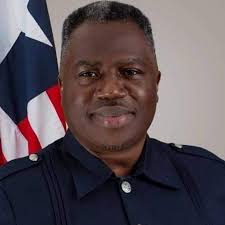Vice President Jeremiah Kpan Koung delivered a staunch defense of the late Senator Prince Yormie Johnson’s legacy, emphasizing his commitment to justice and accountability in Liberia. Koung highlighted Johnson’s pivotal role in supporting the establishment of the War and Economic Crimes Court, a critical step towards addressing Liberia’s history of conflict. Johnson’s signing of the Joint Legislative Resolution paving the way for the court’s creation was, according to Koung, a testament to his dedication to ensuring accountability for wartime atrocities, including his own alleged involvement as listed in the Truth and Reconciliation Commission’s (TRC) recommendations. Koung rejected attempts to tarnish Johnson’s reputation, portraying his support for the court as part of a broader commitment to truth and reconciliation. He maintained that Johnson saw the court not as a threat, but as an opportunity to clear his name and affirm his belief in justice.
Koung directly addressed Senator Thomas Nimely’s assertion that President Boakai and his administration had betrayed Johnson by supporting the court, thereby contributing to his demise. Koung refuted this claim, emphasizing Johnson’s unwavering support for the court’s establishment. He argued that Johnson’s willingness to face the court demonstrated his commitment to accountability and his desire to set the record straight regarding the accusations against him. Koung reiterated that Johnson was never found guilty by any court, nationally or internationally, and that his support for the War Crimes Court underscored his commitment to justice in Liberia. He portrayed Johnson as a champion of accountability, seeking to demonstrate his commitment to the Liberian people and the international community.
The Vice President acknowledged the complexity and controversy surrounding Johnson’s legacy, quoting Johnson’s own words anticipating mixed reactions to his death. Koung painted a picture of a leader who, despite the controversies, made substantial contributions to Nimba County and Liberia. He praised Johnson’s fearlessness and dedication to justice, reconciliation, and development, ultimately declaring him a hero. He lauded Johnson’s commitment to these principles, suggesting that his support for the War Crimes Court was a natural extension of these values.
Following his defense of Johnson’s legacy, Koung appealed to President Boakai to prioritize development in Nimba County, honoring Johnson’s vision for the region’s prosperity. He emphasized the importance of continuing Johnson’s work in Nimba, highlighting the late Senator’s dream of seeing the county thrive. Koung’s plea to President Boakai underscored the significant role Johnson played in Nimba and the responsibility now falling upon the President to carry forward his development agenda. He presented this appeal as a tribute to Johnson’s dedication to the people of Nimba and a means of continuing his legacy.
Furthermore, Koung directed a message to the youth of Nimba, urging them to abandon militancy and focus on self-improvement and contributing to their own progress. He discouraged reliance on external influences, particularly financial inducements, emphasizing the importance of self-reliance and initiative. Koung’s words aimed to inspire the younger generation to take ownership of their futures and build a better future for themselves and their community. His message was one of empowerment and self-sufficiency, encouraging the youth to break free from dependence on others and forge their own paths.
Finally, the account concludes with a note on the late Senator Johnson’s final resting place. He was interred at his PYJ Polytechnic University in Ganta, Nimba County, following a week of funeral rites. This detail provides a sense of closure to the narrative, marking the end of a chapter in Liberian history. The location of his burial, at an institution of learning he founded, further underscores his commitment to education and development in his community, adding another layer to his complex legacy.


